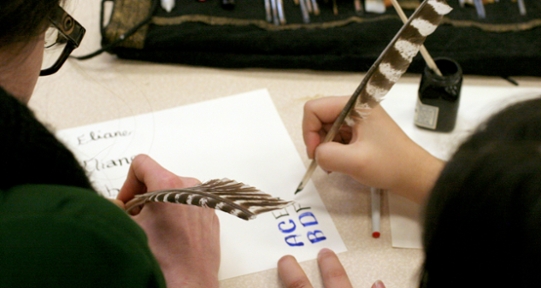Program information

Medieval studies offers honours, major, general and minor programs leading to a Bachelor of Arts degree. You can also earn a double major by taking the major in medieval studies together with a major in another department or faculty. Get a minor in medieval studies by completing the requirements for our general program together with a major or honours program in another department or faculty.
Contact program director Allan Mitchell if you're interested in pursuing a program in medieval studies.
Major in medieval studies
Declaring your major in Medieval Studies is easy. We recommend you try our programs with MEDI 100 and MEDI 200 during the first year.
Here is a step-by-step guide to declaring your program, after completing at least 12 units:
1. Go to your MyPage
2. Click on the “Grades & Records” Tab
3. Click on “Program declaration or change"
You can also visit the Advising Centre, and get help and guidance from one of the advisors there.
Requirements for the major:
4.5 units of the following MEDI courses:
- MEDI 320 Selected Topics in Medieval Voices
- MEDI 330 Selected Topics in Medievalism
- MEDI 360 Selected Topics in Medieval Culture
- MEDI 420 Selected Topics in Medieval Objects
- MEDI 430 Selected Topics in Medieval Places and Spaces
- MEDI 440 Selected Topics in Medieval Intellectual Traditions
- MEDI 445 Selected Topics in Medieval Media
As well as:
- 9.0 units of upper-level courses, selected from other MEDI offerings and the list of eligible courses, (with no more than 3.0 units selected from any department)
Double major
If you're pursuing a double major, you may select courses on the eligible courses list for your second field of concentration, provided the same units are not used for both majors.
Why do an honours in medieval studies?
You'll have the opportunity to work more independently and intensively on a special research essay by doing a final graduating essay, which will be done under the guidance of an individual tutor assigned in the final year of your degree. It is possible to do more coursework in the area. This program is ideal if you're hoping to go on to graduate studies in the discipline.
Minor in medieval studies
To complete the minor, you must take the following courses
And two of the following courses:
- MEDI 360 Selected Topics in Medieval Culture
- MEDI 420 Selected Topics in Medieval Objects
- MEDI 430 Selected Topics in Medieval Places and Spaces
- MEDI 440 Selected Topics in Medieval Intellectual Traditions
- MEDI 445 Selected Topics in Medieval Media
As well as:
- An additional 4.5 units of MEDI course offerings or courses from the eligible courses list at the 300/400 level to be approved by the director of the Medieval Studies Program.
If you're considering graduate work medieval studies, we encourage you to take advantage of the Latin courses offered by Greek and Roman studies. Since the study of ancient Greece and Rome provides an excellent background for medieval studies, and because medieval culture has analogues in non-European cultures, we have created a list of background and comparative courses that serve as useful electives. HSTR 236 (Medieval Europe) is also suggested.
